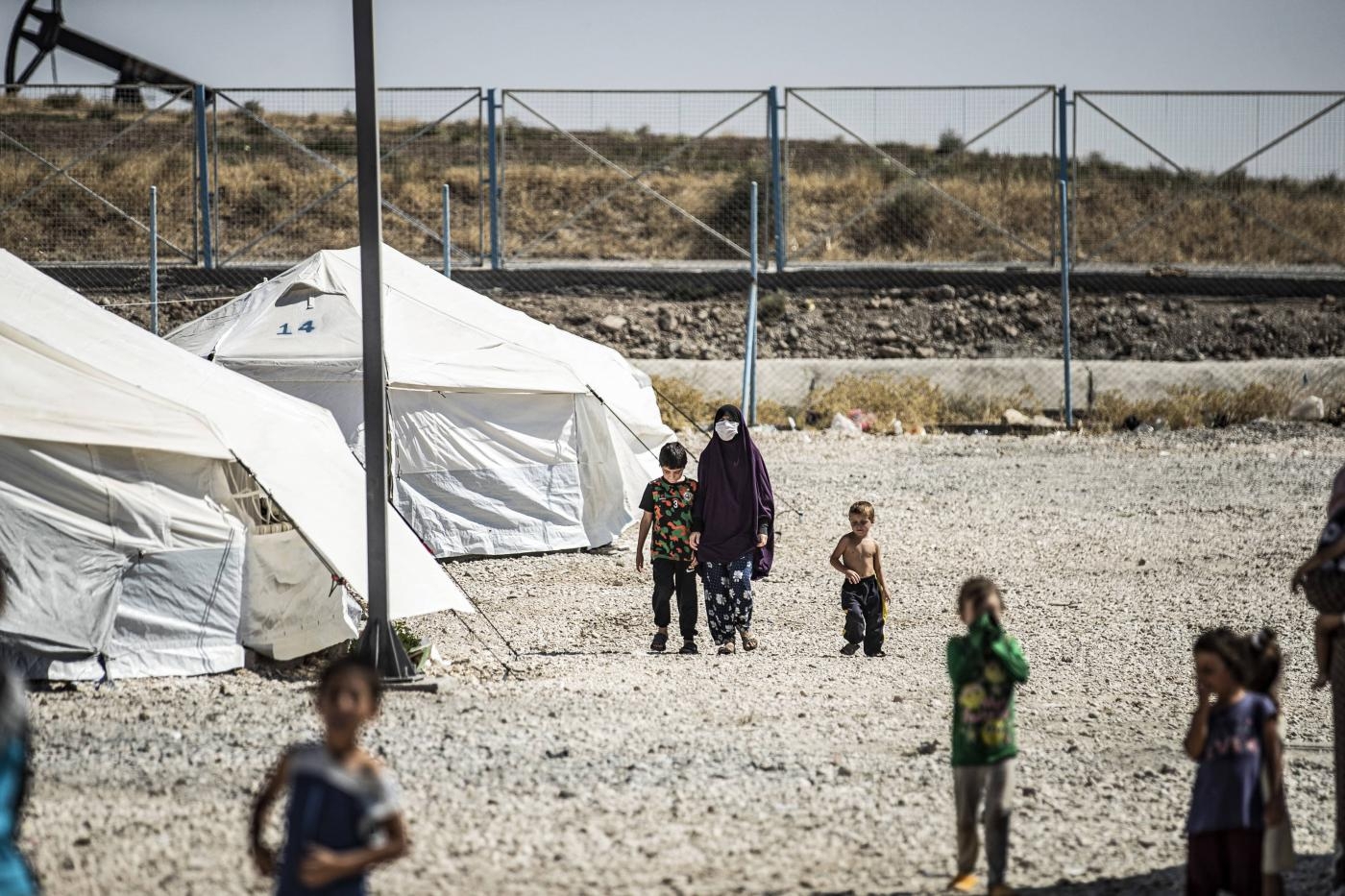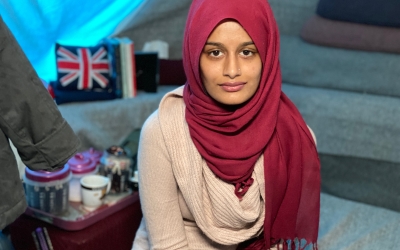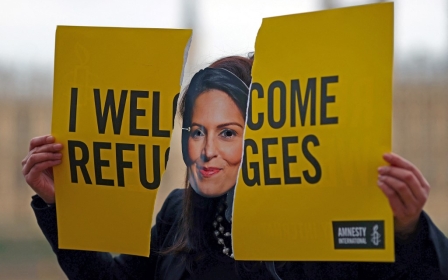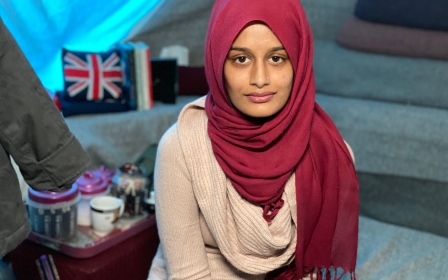UK court says woman stranded in Syria 'unlawfully stripped of citizenship'

The UK's Court of Appeal has ruled that the British government acted unlawfully when it stripped a British woman held in Al Roj camp in Kurdish-controlled northeast Syria of her citizenship without telling her.
The woman, identified in legal proceedings only as D4 in order to protect her identity, only discovered her citizenship had been revoked in 2020 when her lawyers approached foreign office officials to ask for assistance with her repatriation from Syria, only to be told that she was no longer a British national.
Priti Patel, the home secretary, had argued that notification had been given to D4 by simply placing a note on her Home Office file, relying on regulations introduced without parliamentary approval.
In a judgement delivered on Wednesday by a two-to-one majority, Lady Justice Whipple said: “There may be good policy reasons for empowering the home secretary to deprive a person of citizenship without giving notice, but such a step is not lawful under this legislation.
“If the government wishes to empower the secretary in that way, it must persuade parliament to amend the primary legislation. That is what it is currently seeking to do under the Nationality and Borders Bill... it is for parliament to decide.”
The Nationality and Borders Bill, which is currently being reviewed by parliament, has come under severe criticism from both rights groups and politicians.
Under the current system, British nationals whose citizenship is revoked must be notified and have a right to challenge the decision through an appeals process.
The proposed legislation, contained in Clause 9 of the bill, would instead give the government the right to deprive somebody of citizenship without notifying them if it is not practically possible to do so, because of national security or diplomatic considerations, or “for any other reason”.
The Home Office said it intended to seek permission from the Supreme Court to appeal against Wednesday's ruling.
D4 is being held in the same camp as Shamima Begum, who travelled to join Islamic State in 2015 at the age of 15, and was stripped in 2019 of her UK citizenship by Sajid Javid, the then-home secretary, on security grounds.
Al Roj is a camp mostly populated by foreign women and children where families of suspected IS fighters have been detained since the militant group's defeat in 2019. D4 has been held there since January 2019, and was deprived of her citizenship in December 2019, according to the court judgement.
'Assault against migrant rights'
In a joint statement issued earlier this month, campaigners representing charities, and civil society organisations called for public opposition to the Nationality and Borders Bill and for peers to reject it.
"The Nationality and Borders Bill is the latest assault against migrant rights and the democratic rights of British citizens that sharply escalated since the so-called War on Terror. This bill is a route to disenfranchisement and even deportation of people of colour on an unprecedented scale," the letter said.
D4, who was born in the UK and had British nationality from birth, also has Pakistani nationality.
Under international law it is illegal to make a citizen stateless, however the UK government argues it can strip people of their nationality if they are entitled to citizenship of another country.
Commenting on Wednesday's judgement, Birnberg Peirce, D4's lawyers, said the case had exposed "the starkness of the Bill’s proposals and their relationship with fundamental principles of the rule of law at the heart of the UK legal system".
It noted there was a growing appreciation "that the potential for the stripping of British nationality falls primarily upon non-white British citizens, as is D4, a British Muslim woman deemed via ancestry alone to qualify for an alternative nationality whether possessing any connection with that other country or not".
'Minimum safeguards'
Lady Justice Whipple said on Wednesday that the original 1981 British Nationality Act “deliberately structured the process for depriving someone of their citizenship to include minimum safeguards for the individual”.
“The 1981 Act does not confer powers of such breadth that the home secretary can deem notice to have been given where no step at all has been taken to communicate the notice to the person concerned, and the order has simply been put on the person’s Home Office file,” she added.
Middle East Eye exclusively reported in 2017 that British aid workers based in opposition-held areas of Syria were being stripped of their citizenship amid concerns that returnees from the country posed a security threat to the UK.
The powers were used most extensively against British nationals suspected of links to the Islamic State group, as territory held by the militants in Syria and Iraq imploded.
Out of 172 people deprived of citizenship between 2010 and 2018, 104 of those cases occurred in 2017, according to Home Office figures.
The Home Office has described citizenship as "a privilege, not a right". It says the use of citizenship-stripping powers is reserved for “those who pose a threat to the UK or whose conduct involves very high harm”.
A number of people have successfully challenged the government's use of the powers. In May 2021, a man returned to the UK following years stranded abroad, after the government conceded it had wrongly assessed that he was entitled to Bangladeshi citizenship.
Middle East Eye propose une couverture et une analyse indépendantes et incomparables du Moyen-Orient, de l’Afrique du Nord et d’autres régions du monde. Pour en savoir plus sur la reprise de ce contenu et les frais qui s’appliquent, veuillez remplir ce formulaire [en anglais]. Pour en savoir plus sur MEE, cliquez ici [en anglais].






